Brazil World Cup 2018: Remembering back to famous clash with England’s ‘Golden Generation’ in 2002
Nicky Butt, Pelé’s new favourite player, stands stony-faced during God Save The Queen. Paul Scholes maintains a chewing-on-lemons scowl. They’re playing the full version, which seems to confuse everyone apart from David Beckham, his Hoxton fin resplendent in the afternoon glare. With those clunky kits and that generically colossal stadium, it looks like a pre-match cutscene from a Winning Eleven game.
If these images are burnt into English football’s medium-term memory, it is because this was our last semi-great World Cup summer. It was no Italia ‘90, to be sure, but for a whole generation of Three Lions fans, 2002 is as good as it has ever been. Revenge on Argentina, a commanding win over Denmark... it was tempting to wonder, even if just momentarily, whether football might actually be coming home.
It wasn’t, but the final act – a quarter-final meeting with Brazil – was nonetheless a fittingly dramatic end to a rollercoaster summer. As limp England tournament exits go, it was one to cherish.
For the Seleção, though, this was a major hurdle cleared en route to a fifth World Cup title. And while we are well acquainted with the England talking points from that day, from Owen’s fitness and David Seaman‘s positioning to Sven-Göran Eriksson’s tactics, the Brazilian perspective sheds new light on the game.
Did you know, for example, that Beckham’s non-challenge in the lead-up to Rivaldo‘s equaliser was viewed by more than one Brazil player as a major turning point in the game? Or that the Seleção’s comfort in the final half-hour owed to coach Luiz Felipe Scolari‘s insistence on training with 10 men?
This, then, is the story of that Shizuoka tussle, as told to The Independent by Scolari and three of his players that year. Plus Martin Keown, an England substitute that day. Just for balance, you know?
Brazil’s fraught preparations
The Seleção have never missed a World Cup, but they came mightily close in 2002, winning only half of their qualifiers. A freak injury to captain Emerson on the eve of the tournament further disrupted their preparations, although in hindsight, those hardships probably had a galvanising effect.
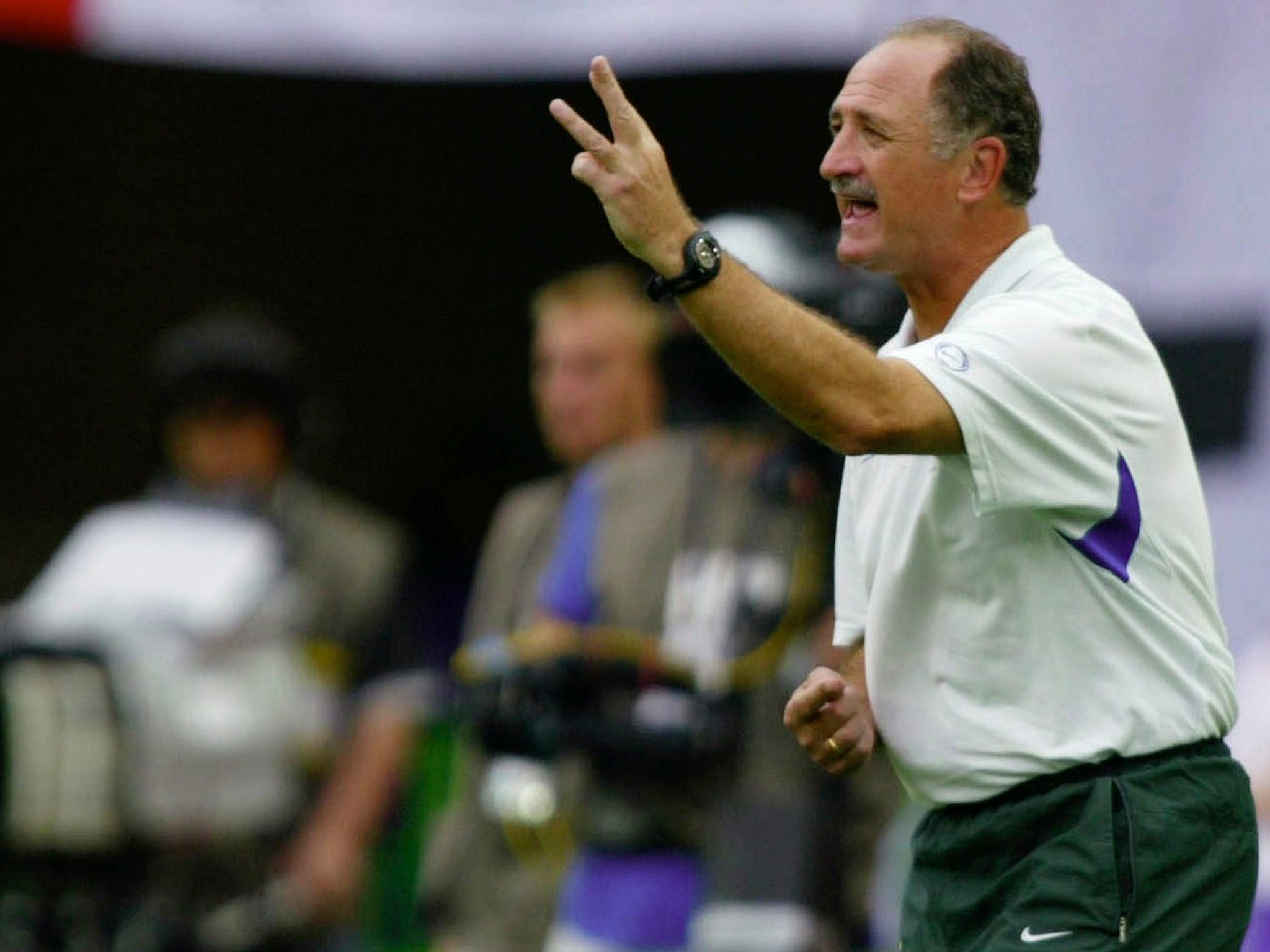
Roque Júnior: “We were a young side, but we had all been through a lot. Qualifying had been really tough: we had four different coaches in 18 games and had a lot of difficulty, losing and drawing games, throwing away leads. So that gave us an extra bit of maturity for the World Cup. In this game, even though we went behind, we had gone through similar situations, which helped. You can’t always come back, but with the quality we had, it helped us a lot.”
The challenge of playing England
Brazil started the tournament with a stutter, only seeing off 10-man Turkey with a late penalty. But easier wins over China and Costa Rica had given the side momentum, and victory against Belgium in the round of 16 set up a game with England – a team no one was taking lightly.
Roque Júnior: “We had just had a tough game against Belgium, and we knew this would be another difficult match against former World Cup winners. England had good players, who were performing at the top level: Owen, Beckham, Heskey, Butt, Paul Scholes. They had a very good team.”
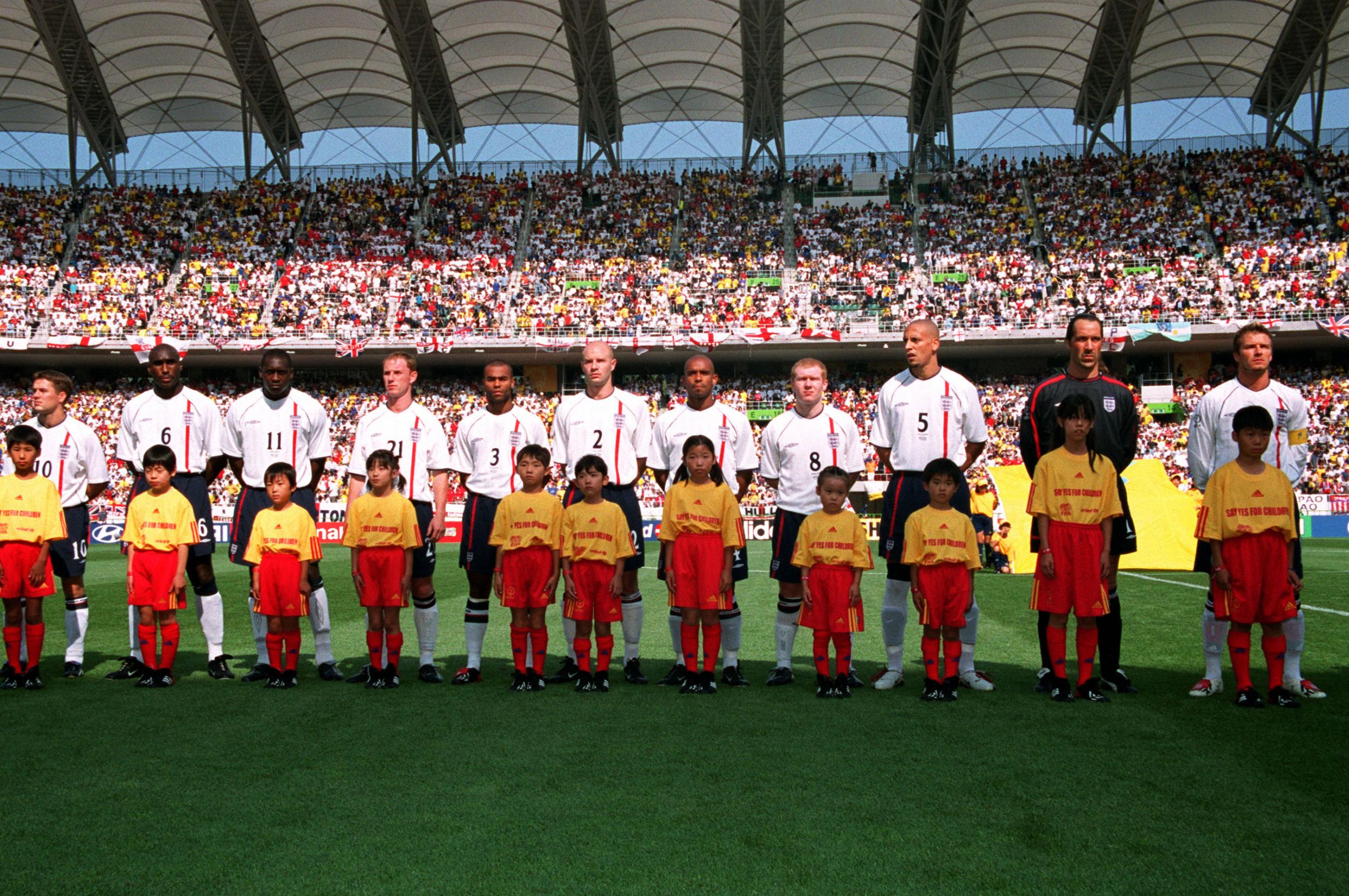
Scolari: “It was a strong England side, with players of great quality, and well organised by Eriksson. We worked a lot on dead balls, because England were strong at set pieces. They were good enough to take the lead – we weren’t expecting to go behind. After that, we had a tough task to turn things around.”
Roberto Carlos: “It was a tough game against England, but I think our hardest match was against Belgium in the last 16. We didn’t take anyone lightly after beating them, but we knew the toughest challenge had passed. We studied England a lot before playing them. They played a more modern style, but we knew how they would look to hurt us.”
Dropping Juninho
Scolari had tinkered with his defence in the group stage, but made a far more significant change against England, dropping Juninho and throwing Kléberson into the mix. The formula stuck: the future Manchester United man kept his place in the semi-final against Turkey and played a key role against Germany in the final.
Scolari: “I did that to give us a bit more control in midfield. I wanted tighter marking. Juninho was a player who would join the attack; Kléberson would get forward too, but he was better at getting back into position afterwards. So it was to establish control: it made things harder for England to play through the middle. I wanted a bit more protection for the defence.
“He reacted very well. I always explained my decisions to the group and the players understood. They were all there with the same aim: to win the World Cup. You don’t do that in a single game. You win it with the whole squad, not just 11 players.”
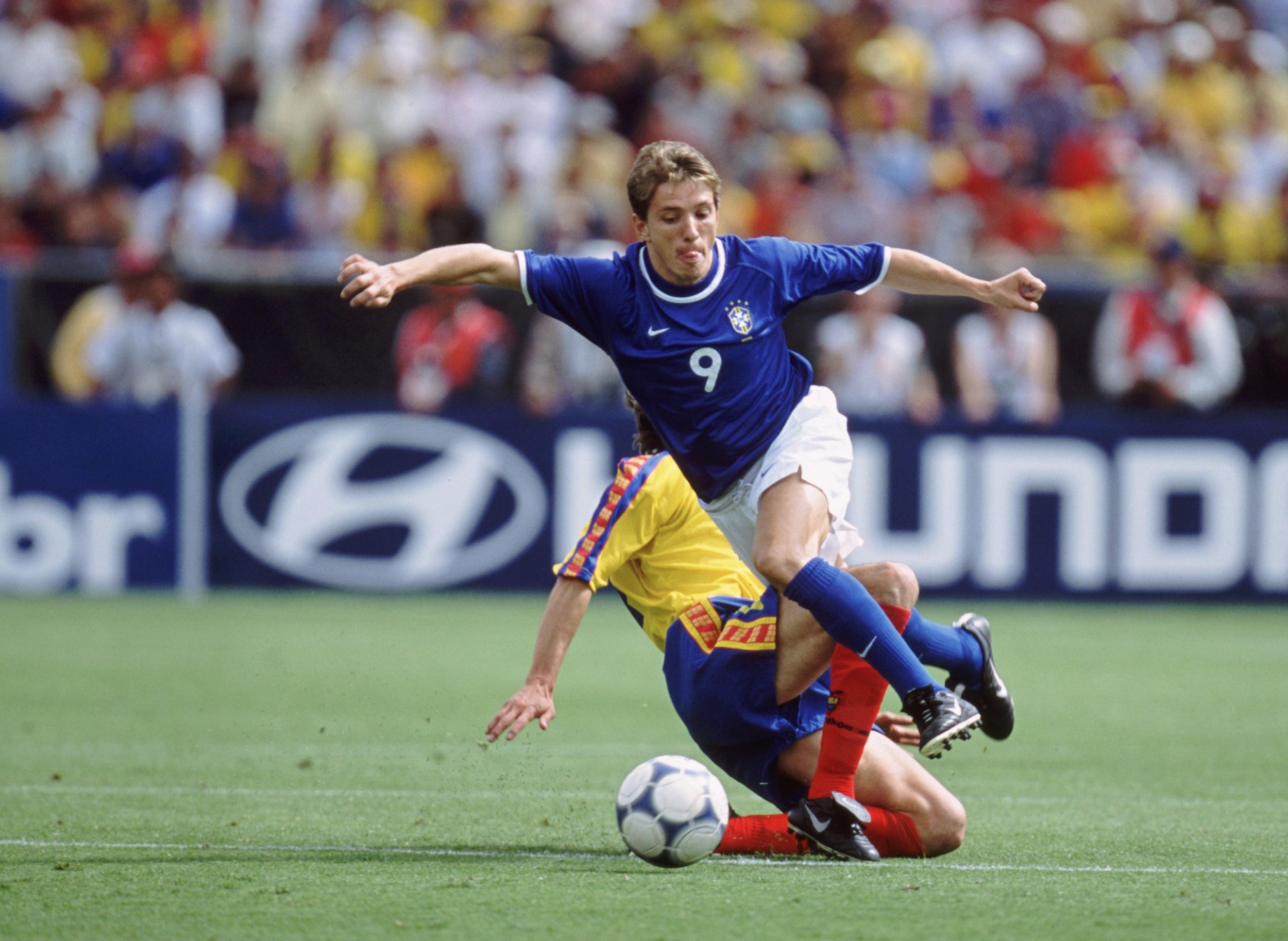
Owen makes it 1-0
Brazil just about shaded the early exchanges, but were caught cold 22 minutes in. Or rather Lúcio was: it was the centre-back’s error, just outside his own box, that allowed Michael Owen to nip in and gleefully tuck the opening goal past Marcos
Scolari: “I was really annoyed, really angry. We had worked hard to make sure that wouldn’t happen. We had prepared for those penetrating runs of Owen, trained to stop that happening, but we still conceded the goal. But I knew we had the ability to come back, because the players had built up confidence in the previous games.
Roque Júnior: “That type of run was Owen’s strength, because he was so quick. England played quite deep, but were good at playing it out, winning the first ball and looking to get in behind. We knew that. Our error wasn’t failing to be prepared... it was just at that moment, Lúcio lost sight of the ball and it hit him. We defended the ball over the top well, to the extent that he got to the ball first. It’s just he lost sight of it, which allowed Owen to score. The error was losing the flight of the ball when he turned his back on it.
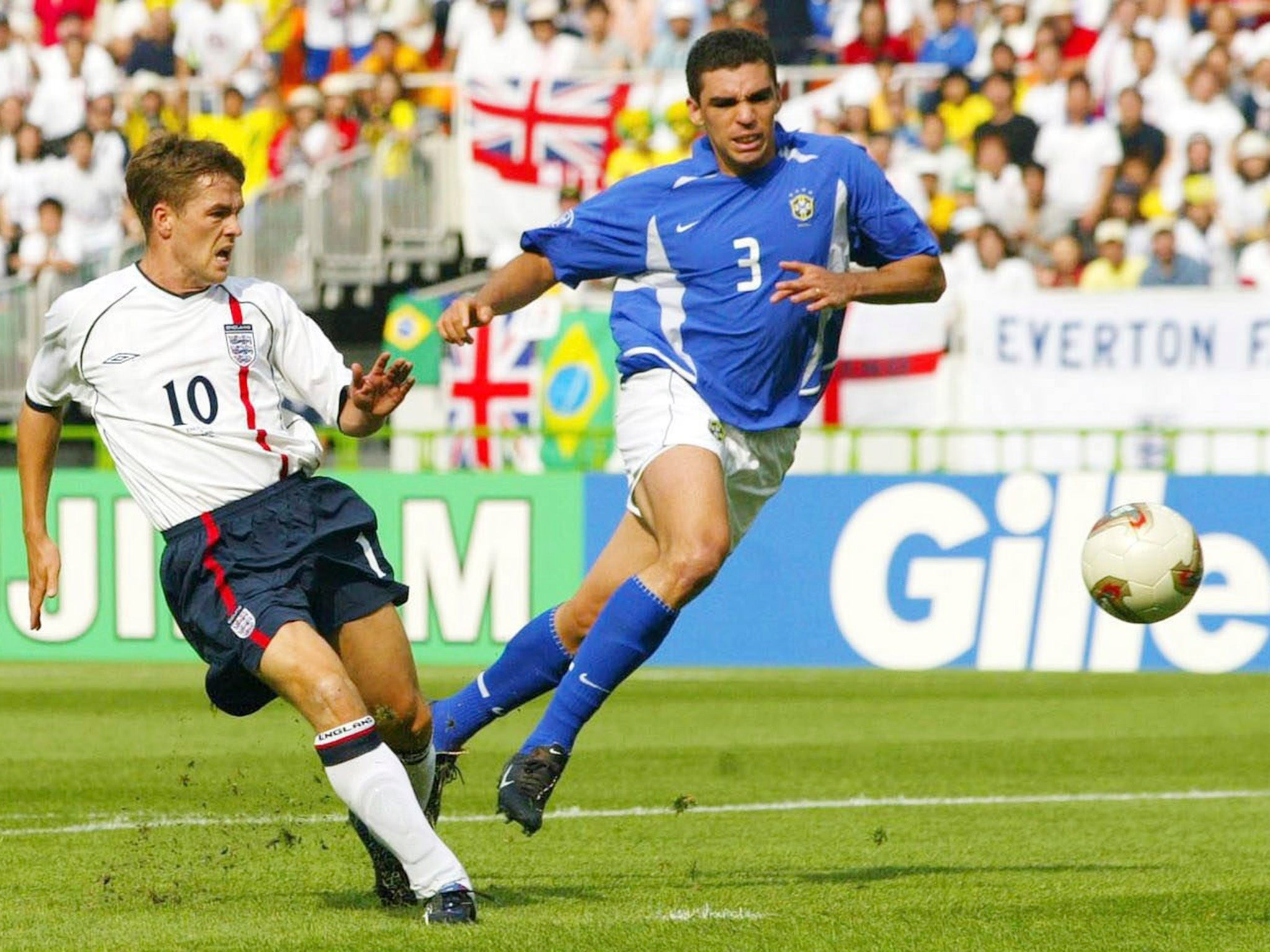
The threat of Heskey
That semi-assist wasn’t the only time Heskey made a nuisance of himself in the first half. The Liverpool forward came close to doubling England’s lead, looping a header onto the roof of the net, and generally made life tough for the Brazil backline.
Roque Júnior: “Me, Lúcio and the other guys from Europe knew about him. He wasn’t at a big team, but we’d seen him play and knew he was strong in the air. We knew England would play the ball up for him to flick on for Owen to run on to. We knew he was strong, and quick for his height.”
Rivaldo levels it up
As the minutes ticked by, England must have thought they had done enough to go into the interval level. They hadn’t. After Beckham was dispossessed on the touchline and Scholes beaten the next ball by Kléberson, Ronaldinho surged forward, all manic jester energy, and slipped in Rivaldo. One touch, 1-1.
Roque Júnior: “The lead-up to our first goal showed the desire we had and highlighted the difference between the sides. If you watch it, it was Roberto Carlos and I who stole the ball on the touchline. In a game with so much riding on it, I would never jump out of the way like Beckham did. That told me how important it was to us and how much we wanted it. I had experience of playing in big games, and that was that point I told myself, ‘Damn, this game is ours.’
“A challenge like that... I would even have stuck my head in to make sure I won it. Roberto Carlos goes in for the challenge and Beckham pulls out. He jumps, we win the ball and end up scoring. It’s in moments like that, in the big games, that you find out who really wants to win the World Cup. You have to put your head in where it hurts. That really stood out at that moment. Small things give you confidence in big games: if you win those challenges, you usually end up winning.”
Scolari: “That was a relief. We had conceded a goal that we shouldn’t have, and when Rivaldo equalised, we saw that we had a big opportunity to win the game. We breathed easier after that and were able to play with more tranquility.”
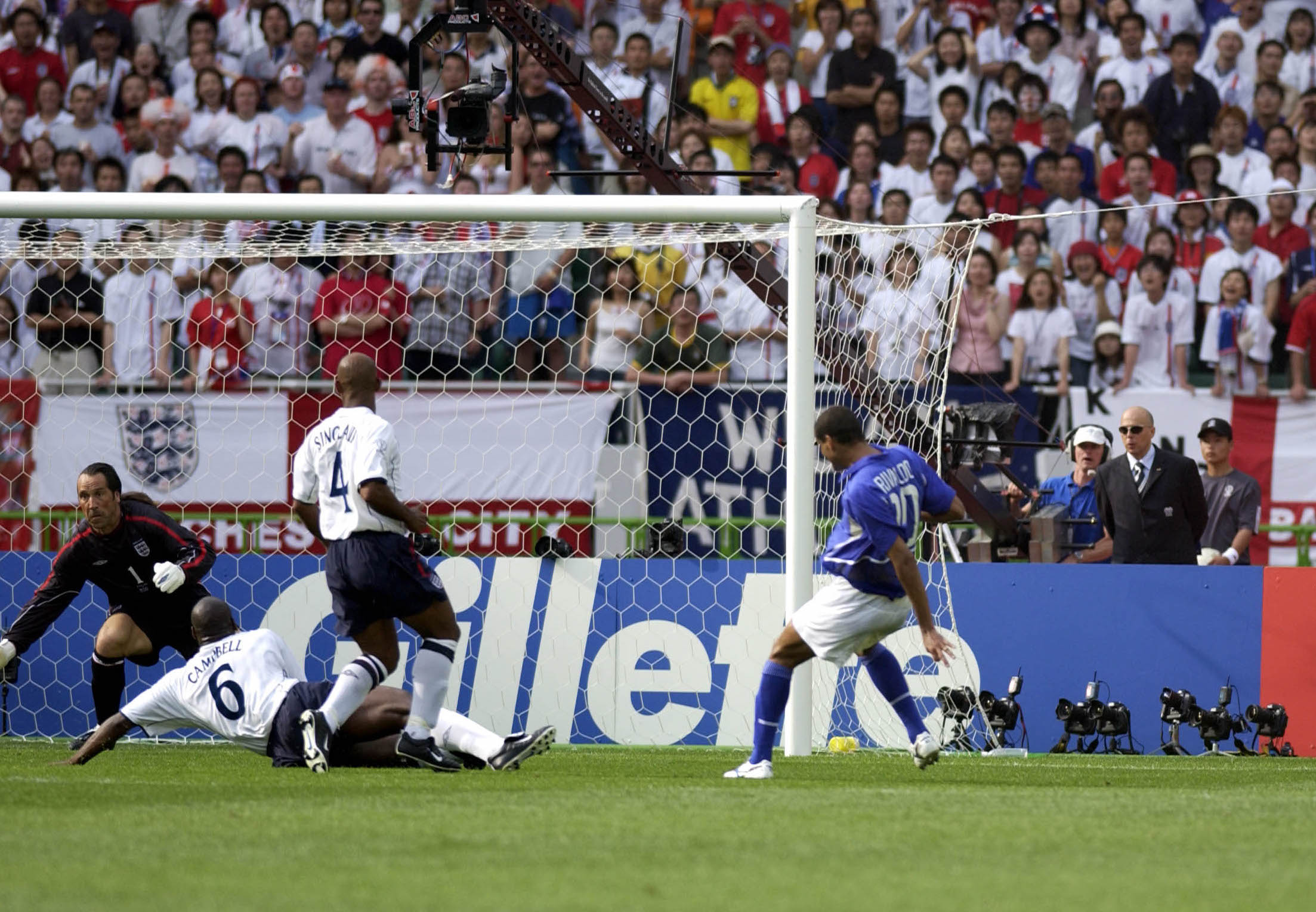
Rivaldo: “That goal was all about Ronaldinho’s run. If you analyse it, David Beckham lost possession when he could have gone in a bit harder. He jumped in the air and left the ball there. Then the ball fell to Ronaldinho, with all his pace and ability, and he ran with it, jagging from side to side. When I saw him coming, I started to position myself; because I’m left-footed, I knew that I would only have time for one touch. I thought, ‘If he passes to me, I’d better be prepared to beat the goalkeeper and score.’
“Luckily he did give it to me, so it happened as I had imagined it and I instinctively picked the right corner. It was great bit of build-up play and my positioning was perfect. It calmed us down ahead of the second half, because the game had been tough up to that point: England were really in the game. That goal was a a bucket of cold water on England; they were tepid in the second half.”
Roque Júnior: “We had the feeling that the game was under control again at 1-1. We knew that we had a great chance of winning if we kept playing the same way. We had a lot of belief, knowing it was in our own hands. I remember arriving in the changing room and feeling that confidence.”
Did he mean it?
England fans will remember the next bit in excruciating detail: a free-kick miles out, Seaman lining his wall up, the ball arcing through the blue Shizuoka sky like a comet. Ronaldinho swears it was a shot, but the debate still rages.
Martin Keown: “I don’t know if he meant it, to be honest. My abiding thought was that he didn’t.”
Roberto Carlos: “He told me he meant it. Seaman was well positioned, but it ended up sneaking into the top corner. It was a lovely goal – the best one scored at that World Cup.”
Roque Júnior: “He said that Cafu had told him that the goalkeeper was slightly off his line. And on TV recently, he claimed that he wanted to put the ball in the [goalkeeper’s] left corner, but that the ball ended up swerving and going over Seaman’s head. Everyone knew that he had extraordinary quality; he’s one of the greats. And if that’s what he says...”
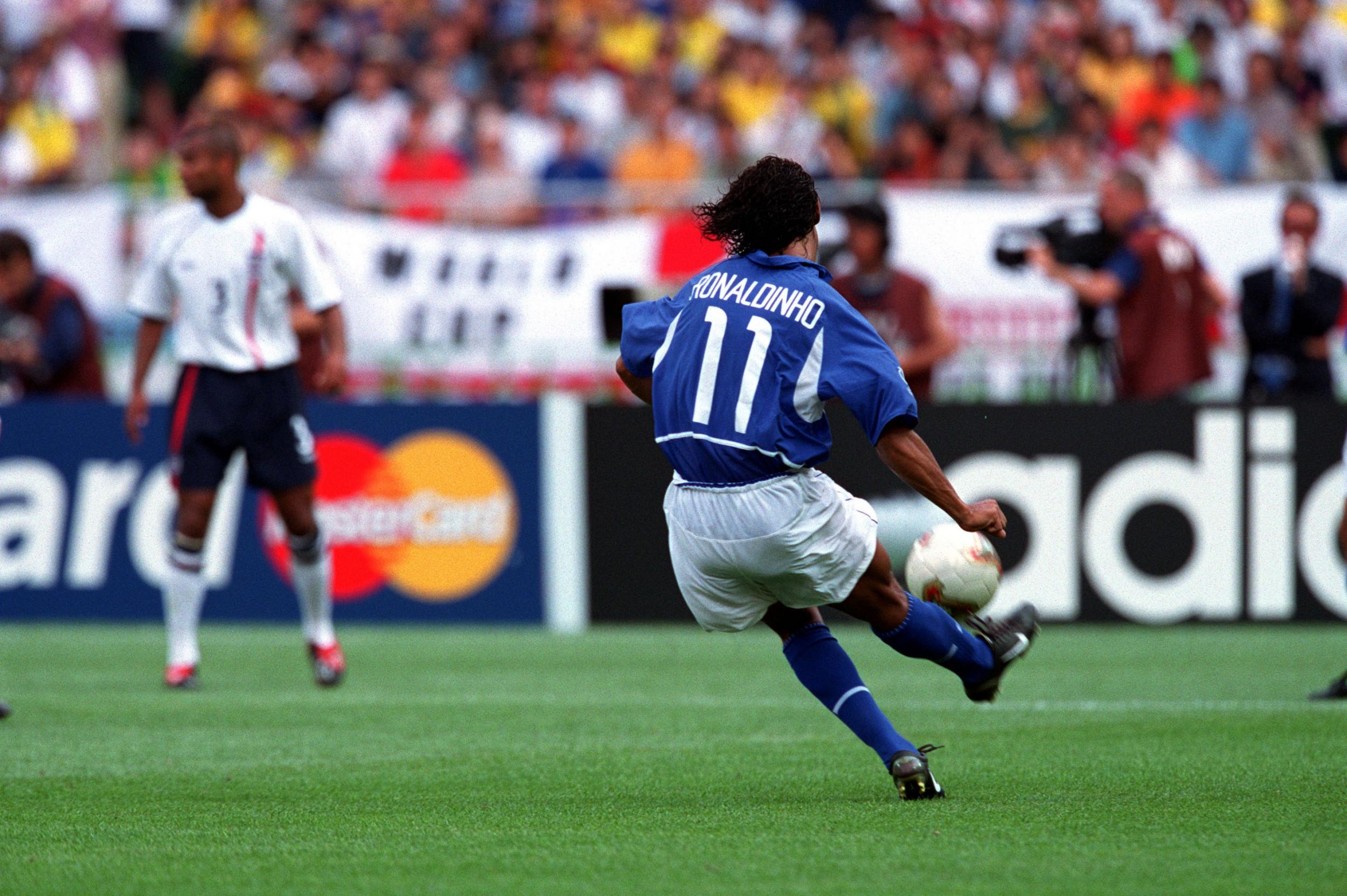
Rivaldo: “For those who play football, that’s a position to cross from, to look for someone in the area. If it’s me or another a left-footed player, it’s a lot easier to hit the target from there than it was for him. The curve he put on the ball, the way he’s out on the right... for those who play football, that’s a ball that you have to cross, not try and put over the goalkeeper.
“The goalkeeper was really tall, and he wasn’t even that far off his line, if you look at it. He wasn’t even outside his six-yard box. But Ronaldinho managed to score. Whether he crossed or shot doesn’t matter; what’s important was that the goal gave us a crucial win. But those who play football think it was a cross.”
Scolari: “We knew we would create chances, but we took the lead with a moment that I would say involved both quality and luck. Because Ronaldinho’s shot... to this day, he says that he saw the goalkeeper was off his line, and that took a lot of quality, to put the ball in the top corner. I think it was a mixture, but I think it was more of a cross than a shot. I always thought that.”
England lose the numbers game
Seven minutes after being mobbed by his team-mates, Ronaldinho was being consoled by those on the Brazil bench, referee Felipe Ramos having shown him a straight red card for a loose challenge on Mills. But England were unable to ram home their numerical advantage – in part because Brazil had made a point of preparing for exactly this scenario, and in part because their goalscorer, who had come into the game with a groin issue, was labouring.
Scolari: “He deserved to be sent off. He went in for a challenge and went over the top. I think his instinct was to protect himself, but he ended up committing a foul that he didn’t need to commit at that moment.
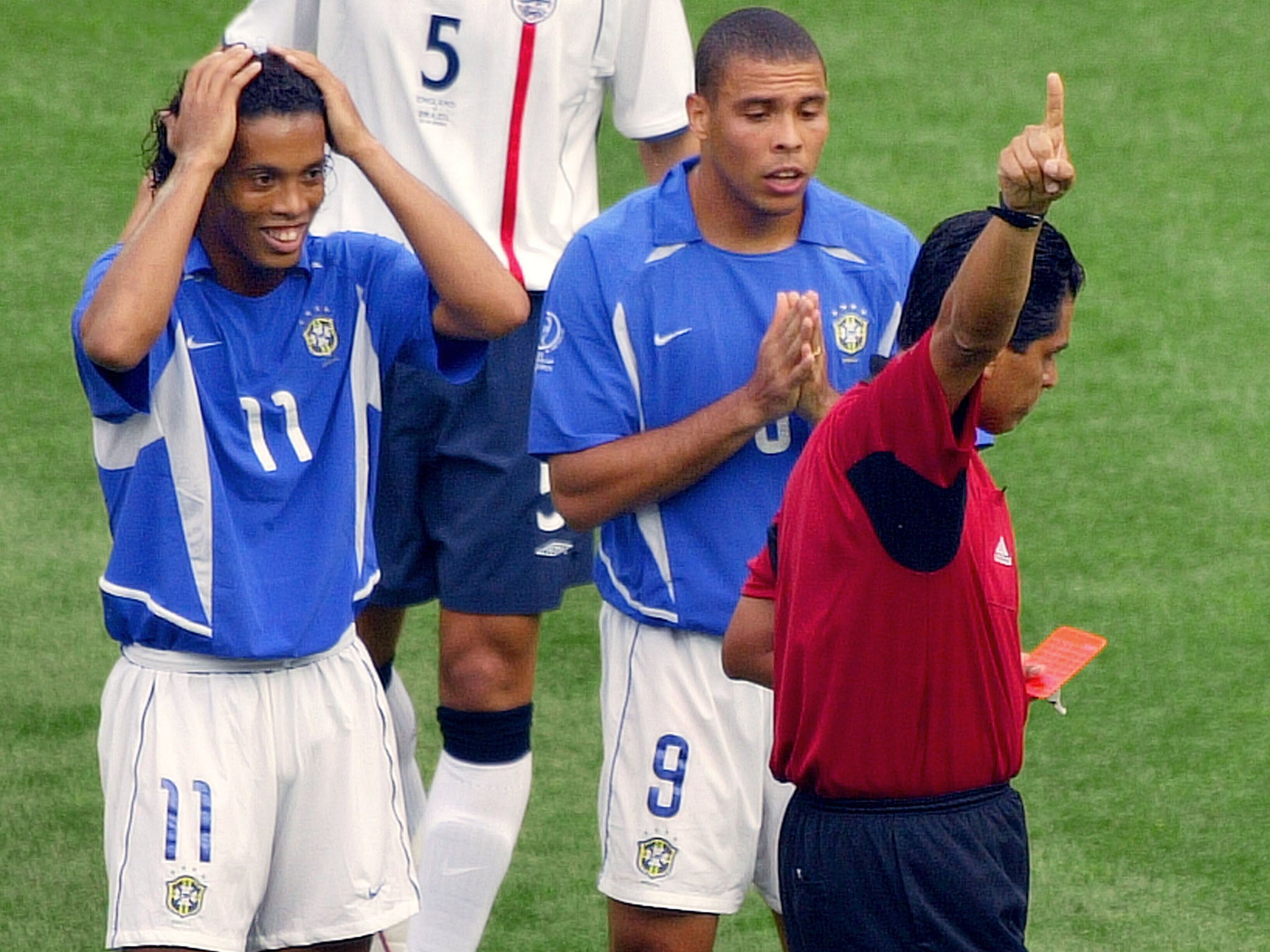
“We had practised playing with 10 men, which helped. People didn’t understand why I would do that in training, but it was so the players knew how to position themselves in case things went wrong. It could have been an injury, or a sending-off; you prepare for these things and often they end up happening. We knew how to line up when we were down to 10 men.
“I only made one change, which was a mark of confidence – that those who were on the pitch knew their roles and were well organised tactically. We only needed to take off Ronaldo because he was all alone up front, and had run himself into the ground.”
Keown: “Owen looked like he was labouring. He’d had an injury and he should really have come off [earlier]. I remember saying to Sven afterwards, ‘You should have taken him off.’ And he said, ‘Well, you should have told me.’ It was bizarre. We were in two separate dugouts, the staff and the players, and you couldn’t really communicate.”
Can’t stand the heat?
Heat and humidity: these twin torturers are often invoked as reasons for England’s struggles in summer tournaments. And a 3:30pm kick-off time in sweltering Shizuoka seemed to do the Three Lions no favours, especially as they huffed and puffed in the latter stages.
Keown: “I remember the conditions. We had trained on the pitch the night before and it was quite cold. It was raining heavily. And then the next day the sun came out, and it was like, ‘Oh my God, this is going to suit them.’ It was a blisteringly hot day.”
Roque Júnior: “It was hot for both teams, so we were on an even footing. And England had a man extra. We deserved to win, and I don’t think the heat had too much influence. We controlled the entire game.”

Brazil march on
In the end, there was to be no brave England fightback. Brazil advanced, with yet more wind in their sails and their Pentacampeonato dreams fast becoming reality.
Roque Júnior: “We had a winning mentality throughout that World Cup. England is a national team with great tradition, and they had good players, but we knew that our desire was most important. People spoke a lot about the unity of the 1994 squad. Every team will have great players, so you have to have something extra that makes you stand out. That’s mentality, desire. It’s not easy, but that’s how you win World Cup.”
Scolari: “We came of that game with confidence because we had been evolving with every game. We had won our first game 2-1, played better in the second... we knew that were improving. So this match gave the team even more confidence.”
Join our commenting forum
Join thought-provoking conversations, follow other Independent readers and see their replies
Comments
Bookmark popover
Removed from bookmarks